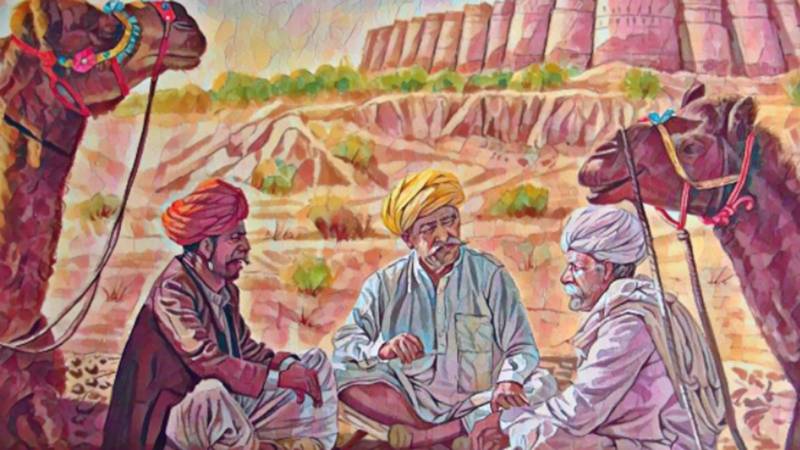
In a recent viral video, Saraiki poet Afkaar Alvi delivered a stirring critique of army transgressions through a poignant poem. His words, “Asaan tedy veer tedy Yar fojia, Apriyan ko taa aap na mar fojia” ("We are your friends, army soldiers, do not harm your own people"), resonated deeply, offering a sweet yet powerful commentary on bitter truths. Alvi's verse sheds light on the Saraiki wasaib's long history of resistance, a narrative often sidelined in mainstream media discourse. This historical backdrop is further complicated by the absence of a dedicated province to preserve and promote their rich heritage.
Without adequate recognition, Saraiki heritage languishes in the shadows, with limited representation in educational curricula and mainstream media platforms
The Saraiki-speaking community, representing over 16% of Pakistan's population and dispersed across the nation, continues to grapple with systemic neglect, particularly in their native southern Punjab. While other minority groups have garnered some level of state recognition, the Saraikis' calls for cultural and administrative acknowledgment have largely fallen on deaf ears. Their struggle remains at odds with the dominance of northern and central Punjab interests within the provincial administration.
Political parties have routinely exploited Saraiki grievances for electoral gain, yet promises of reform, including the creation of a separate Saraiki province, have yielded little tangible progress. The demand for a distinct province reflects a fundamental quest for justice, equality, and self-determination. A Saraiki province would empower local leadership, ensure equitable resource distribution, and provide a platform for the preservation and promotion of Saraiki language and culture.
Without such recognition, Saraiki heritage languishes in the shadows, with limited representation in educational curricula and mainstream media platforms. The absence of a dedicated province further exacerbates these challenges, hindering the community's ability to safeguard its identity and traditions.
However, the journey towards recognition is not without its obstacles. Some policymakers fear that decentralisation efforts may pave the way for further fragmentation, undermining national cohesion. Yet, examples from neighbouring India demonstrate that decentralised governance can strengthen unity by addressing regional aspirations and fostering inclusive development.
The time has come for the state and political leaders to move beyond rhetoric and take concrete steps towards addressing Saraiki grievances. By implementing administrative reforms and embracing diversity, Pakistan can ensure a more inclusive and prosperous future for all its citizens. It is imperative to recognise and empower the Saraiki people, celebrating their resilience and contributions to the nation's rich cultural mosaic.

